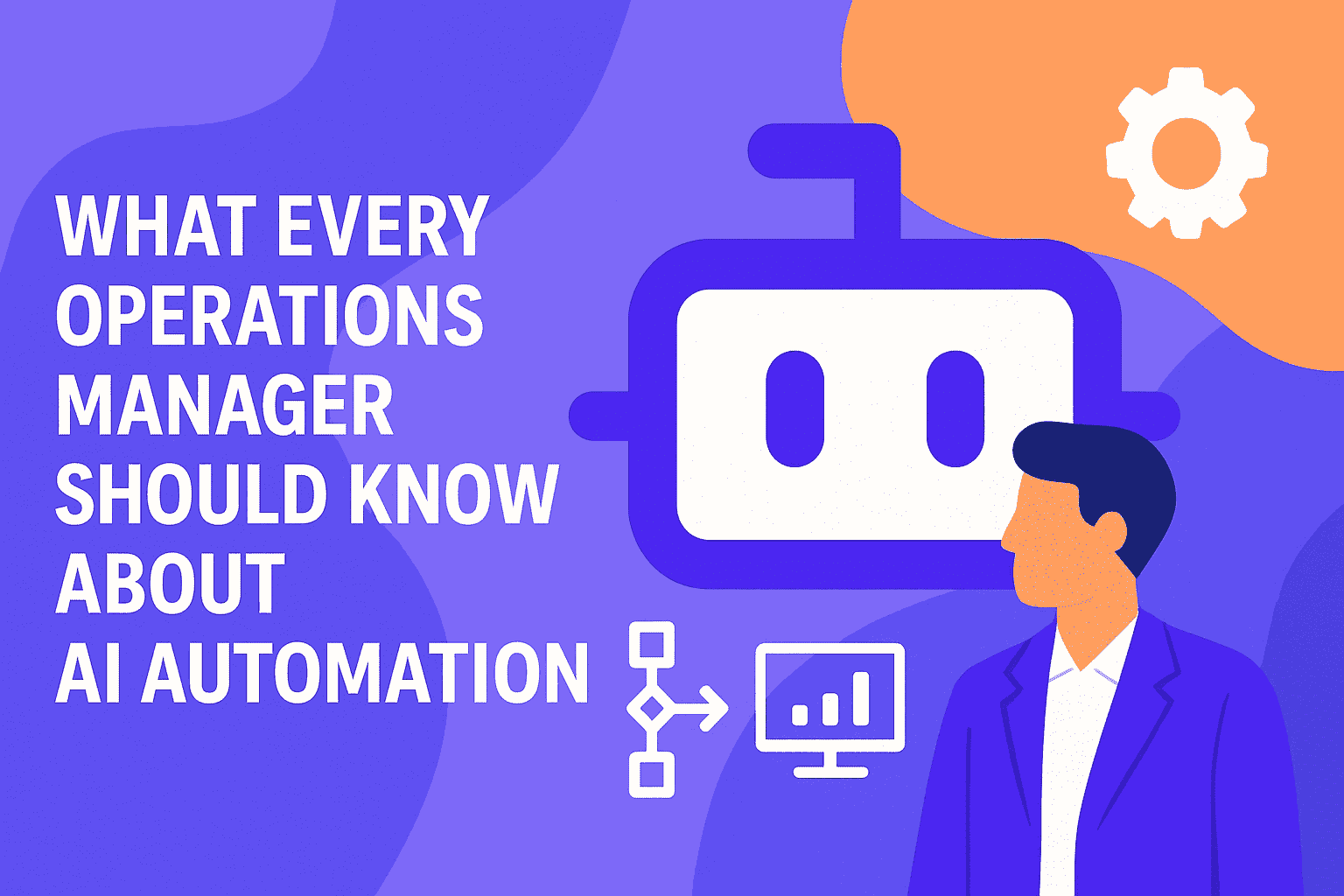What Every Operations Manager Should Know About AI Automation

As the pace of business accelerates, operations managers find themselves juggling more complexity than ever before. From logistics and inventory to workforce scheduling and customer satisfaction, there’s constant pressure to optimize every process. Enter AI automation, a transformative technology that enables operations leaders to elevate performance while cutting costs and enhancing accuracy.
In this blog post, we unpack the essential knowledge every operations manager needs about AI automation: what it is, why it matters, and how to leverage it to stay ahead.
What is AI automation?
AI automation combines artificial intelligence with automation tools to execute tasks without human intervention. These systems learn from data, make decisions, and continuously improve processes over time.
Unlike traditional automation which follows pre-set rules, AI automation adapts to new data and evolving conditions. This makes it ideal for dynamic operations environments where flexibility and speed are critical.
Why operations managers should care
Operations is the beating heart of any organization. With AI automation, managers can:
- Reduce operational costs by minimizing manual errors and labor-intensive tasks
- Increase throughput through intelligent scheduling and resource allocation
- Enhance decision-making with real-time data insights and predictive analytics
- Improve customer experience with faster, more accurate service delivery
Companies that embed AI into operations often report productivity gains of up to 40%, based on industry analysis and expert assessments.
Top use cases in operations management
Here are some practical applications of AI automation in operations:
1. Supply chain optimization
AI can analyze supplier performance, predict delays, and recommend alternative routing, all in real-time.
2. Demand forecasting
AI models can predict future demand more accurately than traditional methods, reducing overstocking or shortages.
3. Inventory management
Smart automation can track inventory levels and reorder stock based on real-time sales and lead times.
4. Workforce scheduling
AI tools like chatbots and intelligent schedulers optimize shifts based on workload, employee preferences, and compliance.
5. Quality control
Computer vision and machine learning detect product defects faster and more reliably than human inspectors.
How to get started
Start by identifying repetitive, rule-based tasks in your operations. Evaluate which of these could benefit from AI-driven insights or autonomous execution.
Then, explore platforms that integrate with your current systems. YooBot, for instance, offers pre-built AI agents and customizable workflows tailored for operations managers, making it easy to automate without writing a single line of code.
Key Considerations for Implementation
- Data Quality: AI is only as good as the data it learns from.
- Change Management: Involve your team early and provide adequate training.
- Scalability: Choose solutions that grow with your operations.
- Compliance: Ensure automated processes meet industry regulations.
The future is now
AI automation isn’t a future luxury, it’s a present-day necessity. Operations managers who embrace it not only survive industry shifts but lead them.
Unlocking its potential starts with awareness, followed by strategic adoption.
Ready to transform your operations? Explore YooBot’s AI-powered tools today.